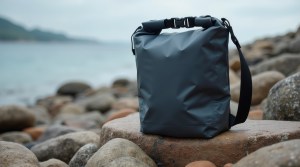Navigating the Requirements of Saltwater Fishing Licenses: A Beginner’s Guide
If you’re new to saltwater fishing, understanding the licensing requirements is crucial for a successful and lawful fishing experience. Saltwater fishing licenses not only help regulate fish populations but also ensure that you are fishing responsibly and sustainably. In this guide, we’ll cover everything you need to know about obtaining your saltwater fishing license, including what it entails, how to get one, and important regulations to keep in mind.
What is a Saltwater Fishing License?
A saltwater fishing license is a permit that allows individuals to fish in ocean waters. The specific requirements for obtaining one can vary significantly by state or region. This license serves several purposes: it helps manage fish populations, supports conservation efforts, and provides funding for fisheries management programs. It’s essential if you plan on catching or harvesting any species from saltwater environments.

Who Needs a Saltwater Fishing License?
Generally speaking, anyone over a certain age must possess a valid saltwater fishing license when fishing in saltwaters. The age requirement varies by state; typically, individuals aged 16 and older will need a license. Additionally, certain exemptions may apply such as for seniors or young children under specific age limits. Always check with your local wildlife agency for precise stipulations regarding who needs a license.
How to Obtain Your Saltwater Fishing License
Obtaining your saltwater fishing license usually involves visiting your state’s natural resources or wildlife agency website where licenses can often be purchased online. Alternatively, you can visit designated retail locations such as bait shops or outdoor sporting goods stores that sell licenses directly. Be prepared with personal identification details and payment methods ready during the application process.
Understanding Licensing Fees and Types
Licensing fees can vary based on several factors including resident versus non-resident status as well as the duration of the license (one-day permits versus annual permits). Many states offer various types of licenses tailored for different anglers like recreational permits versus commercial licenses. Ensure you select the right type according to your intended activities.
Staying Compliant with Regulations
Having your saltwater fishing license does not exempt you from following other local regulations concerning bag limits, size restrictions on catches, and seasonal closures which protect spawning populations. Familiarize yourself with these regulations by checking local guidelines provided by wildlife agencies before heading out—this ensures responsible angling practices while preserving aquatic ecosystems.
In conclusion, securing your saltwater fishing license sets the foundation for an enjoyable experience on the water while supporting sustainable practices within marine environments. By understanding what licenses are required in your area along with associated regulations and fees you’ll be well-prepared to cast your line responsibly. Happy fishing.
This text was generated using a large language model, and select text has been reviewed and moderated for purposes such as readability.











